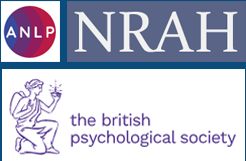Exams are a stressful time. There is so much depending on you passing or even getting a particular mark. Some stress can be good to focus your mind, however, too much stress can affect our mental health and make us feel overwhelmed, making it difficult to concentrate on anything, let alone studying for exams.
Stress is generally considered the emotional, physiological and psychological effects caused by a build up of either externally or internally generated mental pressure. Stress originates as a function of our primitive brain, when a danger is registered, it produces a fight or flight response. This is due to the many chemical and physical reactions taking place, such as increased cortisol and adrenaline, leading to an increased heart rate and higher blood pressure.
Darlington College recognised that many of their students suffered with exam stress and introduced an innovative approach to learning which involved utilising a Hypnotherapist. The Hypnotherapist offered training in meditation and breathing techniques to overcome exam stress. Exam results improved from the previous year.
Hypnosis is a state of mind related to deep relaxation, increased suggestibility and narrowed focus. The Hypnotherapist assists their client to enter a very relaxed state of hypnosis and then make positive suggestions that help the subconscious mind achieve desired goals. It is true that some people are more suggestible than others. Generally, people of very low intelligence are not suggestible.
There is an obvious concern that a Hypnotherapist can misuse their skills and instruct a client to do something against their will, this concern comes from stage hypnosis shows. There is a large difference between hypnotherapy and stage hypnosis. People who volunteer in stage hypnosis shows are exhibitionists who choose to behave in that manner. People who visit a Hypnotherapist retain their core beliefs and stay in control.
Hypnosis as it is understood today, started with the Austrian Physician Franz Mesmer in the 18th century. He considered a sleep like state would assist patients in healing their ailments. James Braid was a Scottish Doctor who studied surgery at the University of Edinburgh and took an interest in these matters and named the sleep like state hypnosis after the Greek god of sleep Hypnos. Braid developed the medical applications of hypnosis and became regarded as the father of modern hypnosis.
The very nature of hypnotherapy in inducing a deeply relaxed state helps manage stress. When in this deeply relaxed state, the Hypnotherapist makes positive suggestions to finding better ways to respond to stress. Some students will see results after one session, whilst others may require a few sessions. A Hypnotherapist will also likely teach relaxation methods to use after the sessions.
One such method is the Calm Technique. This involves breathing in through the nose and out through your mouth, breathe slowly and deeply and feel your stomach muscles relaxing. Then take a deep breath in and push out your stomach muscles, hold in this breathe for three seconds, slowly breathe out your mouth, pull in your stomach muscles and say to yourself the word ‘calm’, repeat this twice. Then allow the word ‘calm’ to drift around your mind.
Get in touch today for a session to help manage exam nerves

